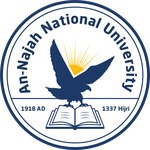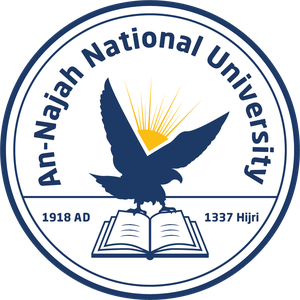Ghaidaa Shaqour
- Nature of Work
- Academic
- Profession
- Instructor
- Email Address
- [email protected]


Ghaidaa Shaqour
- Nature of Work
- Academic
- Profession
- Instructor
- Email Address
- [email protected]
- Course Title
- Paediatric Optometry
- Course Number
- 7107305
- Instructor Name
- Ghaidaa Shaqour
- Contact Information
- [email protected]
- Semester(s) and academic year(s)
- Second Semester 2022
- Compulsory / Elective
- Compulsory
The module provides advanced and specialized theoretical background knowledge and practical skills for paediatric visual problems and their management. It has a particular emphasis on the need for eye examinations for children and how the practitioner can ensure child-friendly testing procedures and hence a successful examination. The course also considers binocular vision anomalies and specific learning difficulties, as well as the role of the optometrist in managing children with these conditions and detecting visual problems at early age by conducting vision screening programs in pre-school children.
This module aims to provide the students with the knowledge and skills needed to deal with a paediatric patient, examine his/her vision, diagnose and treat the condition with the optimum optical correction or referral when needed.
- Knowledge and understanding
- Understand the differences in dealing with an adult patient and a child patient.
- Recognise the relevant aspects of normal visual development in children .
- Identify the normal values for visual acuity, refractive error, ocular motility and deviations according to the patient age.
- Recognise the deviations from normal visual development.
- Identify the most common causes of visual impairment in childhood and their impact.
- Recognize the optical corrections available for children.
- Identify the ocular diseases occur in children and their impact on vision.
- Identify low vision problems in children and their impact.
- Explain the meaning of learning difficulties.
- Express how to deal with a patient with limited communication or understanding.
- Define what child abuse is and to recognise the physical and ocular signs of child abuse.
- Intellectual skills
- Demonstrate the ability to deal with a child patient.
- Specify the appropriate testing techniques in an eye examination (visual acuity, refraction, keratometery and checking eye health) with a child and how to interpret results.
- Identify the criteria of treating an amblyopic patient.
- Demonstrate the challenges and solutions in dispensing optical correction (spectacles or contact lenses) for children.
- Evaluate the evidence for the learning difficulties visual conditions.
- Specify the educational systems that should be available to support children with special educational needs and how the optometrist can contribute to that support.
- Professional and Practical Skills
- Apply basic clinical techniques.
- Learn how to prepare a report project.
- General Transferrable Skills
- Develop time management skills.
- Work independently.
- Develop IT skills.
- Improve problem solving skills.
- Improve communication skills.
- Respect faculty and assisting personal.
- Contribute to class participation by adhering to attendance policy.
- Develop scientific research skills.
- Harvey W, Gilmartin B. Paediatric Optometry: Butterworth-Heinemann; 2004.
- Schnell PH, Taub MB, Duckman RH. Visual development, diagnosis, and treatment of the pediatric patient. Second edition. ed. Philadelphia: Wolters Kluwer; 2020.
- Nelson LB, Olitsky SE. Harley's pediatric ophthalmology. Sixth edition / editors, Leonard B.
- Evans BJW. Binocular vision. Edinburgh ;: Elsevier/Butterworth-Heinemann; 2005.
| Activity | Percent (%) |
|---|---|
| Midterm Exam | 30% |
| Class activities & Quizzes | 20% |
| Final Exam | 50% |